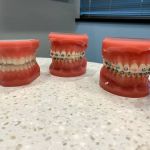How to Keep Your Mouth Hydrated and Healthy: Essential Tips and Tricks
As someone who has struggled with dry mouth in the past, I can truly appreciate how uncomfortable and frustrating it can be. Maintaining a hydrated mouth is essential for overall oral health, and there are many easy and effective ways to achieve this. Throughout this article, I'll share the best practices I’ve discovered for keeping your mouth hydrated and healthy, ensuring a fresh, comfortable feeling all day long.
1. Stay Hydrated: The Most Obvious Yet Crucial Step
The most straightforward and essential way to keep your mouth hydrated is simply by drinking plenty of water. I’ve noticed that even when I think I’ve had enough, my body still needs more. Dehydration is one of the leading causes of dry mouth, and without enough fluid, saliva production slows down, leading to discomfort and potential oral health issues.
I make it a habit to carry a water bottle throughout the day, especially when I’m working or out and about. For those who struggle to drink enough water, try infusing your water with natural flavors like cucumber, lemon, or mint to make it more appealing. Just remember, drinking water regularly is key to ensuring your mouth stays hydrated and your body remains healthy.
2. Use Moisturizing Mouthwashes and Sprays
Sometimes, even drinking water isn't enough to keep the mouth hydrated, especially if you’re experiencing dry mouth due to medication or other health conditions. In these cases, using a moisturizing mouthwash or mouth spray can be incredibly beneficial. I found that a mouthwash formulated specifically for dry mouth helps maintain moisture levels and keeps my mouth feeling fresh for longer.
These products often contain ingredients like aloe vera, xylitol, or glycerin that help hydrate the tissues in your mouth. While regular mouthwash can be drying due to alcohol content, these specialized products promote hydration and provide long-lasting relief from dry mouth symptoms.
3. Chew Sugar-Free Gum or Suck on Lozenges
If you’re looking for a quick and convenient way to stimulate saliva production, chewing sugar-free gum or sucking on lozenges can be a game-changer. I personally love how chewing gum not only freshens my breath but also encourages my mouth to produce more saliva, which naturally keeps things moist and comfortable.
There are many sugar-free gum options that are specifically designed to help with dry mouth, often containing xylitol, which has been shown to promote saliva production. Lozenges work in a similar way, soothing the mouth and encouraging natural moisture, which is particularly helpful during the colder months when dry air can exacerbate the problem.
4. Be Mindful of Your Diet: What to Eat and Avoid
Your diet plays a significant role in how hydrated your mouth stays. I've learned that foods high in water content—such as cucumbers, oranges, and watermelon—are excellent for keeping my mouth moist. Additionally, foods rich in fiber, like apples and carrots, not only help clean your teeth but also promote healthy saliva production.
On the other hand, certain foods and drinks can contribute to dehydration. For example, caffeinated beverages and alcohol are known to dry out the mouth. If I want to stay hydrated, I limit my intake of these drinks and try to balance them with water. Spicy foods and salty snacks can also contribute to dry mouth, so it's wise to keep an eye on these as well.
5. Use a Humidifier to Combat Dry Air
Another great tip I discovered is using a humidifier, especially at night. I’ve noticed that when I sleep with a humidifier in my room, my mouth feels less dry when I wake up. This is because a humidifier adds moisture to the air, preventing the mouth and throat from drying out while I sleep.
If you live in a particularly dry climate or during the winter months when the air tends to be drier, using a humidifier in your bedroom can work wonders for your mouth’s hydration. Just make sure to clean the humidifier regularly to avoid the buildup of mold and bacteria.
6. Regular Oral Hygiene: Brush and Floss Properly
Maintaining proper oral hygiene is another crucial aspect of keeping your mouth healthy and hydrated. I’ve found that brushing my teeth twice a day with a fluoride toothpaste, as well as flossing regularly, helps prevent issues like gum disease and tooth decay, which can contribute to dry mouth and discomfort.
Additionally, using a toothpaste designed for sensitive teeth can be helpful if you experience discomfort in your mouth. It’s important to avoid brushing your teeth too aggressively, as this can irritate the gums and further contribute to dryness. A soft-bristled toothbrush is gentler on your mouth, especially if you’re dealing with dry mouth issues.
7. Stay Away from Tobacco Products
If you smoke or use other tobacco products, you’re likely to experience more severe dry mouth symptoms. I’ve seen this firsthand with many of my friends who use tobacco—they often complain about having a dry, sticky mouth. Tobacco decreases saliva production, leading to the feeling of having a parched mouth.
By quitting or reducing your tobacco use, you can significantly improve your oral health and hydration. It may take time, but the benefits for both your mouth and overall health will be well worth the effort.
8. Visit Your Dentist Regularly
Lastly, don’t underestimate the importance of regular dental visits. I’ve learned that regular check-ups are essential for keeping your mouth healthy, and they’re a great way to catch issues like dry mouth early on. Your dentist can offer personalized advice and recommend treatments or products that can help keep your mouth hydrated and healthy.
Whether it's a simple check-up or seeking treatment for more serious dry mouth symptoms, your dentist is a great resource for maintaining optimal oral health.







 Atwood Aaron DDS3.0 (18 review)
Atwood Aaron DDS3.0 (18 review) High Point Dentistry4.0 (1675 review)
High Point Dentistry4.0 (1675 review) Children's Dental FunZone - Pediatric Dentist - Fontana4.0 (1496 review)
Children's Dental FunZone - Pediatric Dentist - Fontana4.0 (1496 review) Dr Donnelly Patrick5.0 (43 review)
Dr Donnelly Patrick5.0 (43 review) Gladwell Orthodontics4.0 (253 review)
Gladwell Orthodontics4.0 (253 review) Nathan Satler, DDS4.0 (64 review)
Nathan Satler, DDS4.0 (64 review) The Importance of Oral Health Education During Pregnancy for a Healthy Pregnancy
The Importance of Oral Health Education During Pregnancy for a Healthy Pregnancy Best Tips for Brushing Your Teeth Properly for Healthy Gums: Essential Techniques for Oral Health
Best Tips for Brushing Your Teeth Properly for Healthy Gums: Essential Techniques for Oral Health Why Skipping Dental Checkups Can Lead to Bigger Oral Health Problems
Why Skipping Dental Checkups Can Lead to Bigger Oral Health Problems Advantages of Porcelain Dental Restorations
Advantages of Porcelain Dental Restorations How Can Diabetes Cause Tooth and Gum Problems? Preventing and Managing Oral Health Issues
How Can Diabetes Cause Tooth and Gum Problems? Preventing and Managing Oral Health Issues Healthy Habits for Promoting Good Oral Health and Hygiene: Tips for a Healthy Smile
Healthy Habits for Promoting Good Oral Health and Hygiene: Tips for a Healthy Smile